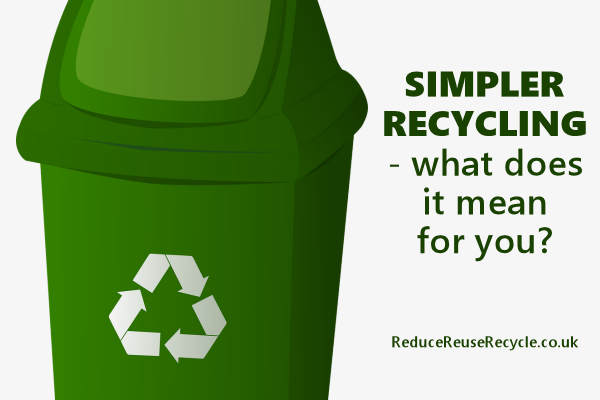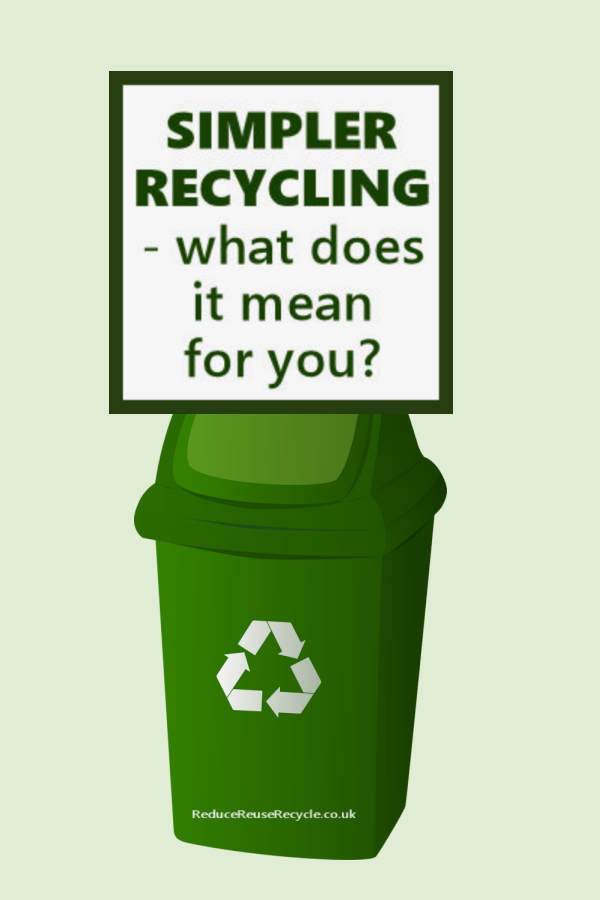Simpler Recycling – What Does It Mean For You?

Recycling is now part of normal life for most people in the UK now, from your domestic recycling collection to recycling centres in supermarkets, car parks and your local waste and recycling collection.
However your household recycling collection can still be quite confusing.
Different councils will collect different items – where one council collects all recycling in one bin, others ask householders to separate paper and card, glass and plastic. Some areas will recycle old books with the paper recycling; others can only accept them at your local recycling centre. Some include plastic bags with plastic recycling and others expect you to save them all and deposit them at supermarket soft plastic collection bins.
However from 31 March 2026, this is all going to change as the government are bringing in legislation in England, forcing waste collectors to collect all the following types of waste separately, which will standardise what can be recycled at home.
- Food and garden waste
- Paper and card
- All other dry recyclable materials (glass, metal and plastic, including tetrapak-type cartons)
- Residual waste
All these types of waste must be collected from all households, including flats.
Furthermore, plastic film packaging and plastic bags will need to be collected with plastic recycling from 31 March 2027.

A big part of these new regulations are intended to encourage much more recycling of food waste including Meat and fish leftovers including bones, eggs and all dairy products, vegetables and fruit,
bread, cake and pastries, coffee grounds and tea bags along with real flowers and floral decorations.
Paper and card can be collected along with other dry recyclable materials in the same bin as many areas do at the moment, but you may still be asked to separate them – so you’ll need to pay attention to your local council’s instructions.
Residual waste refers to all the other non–recyclable material that currently goes into your waste bin that is then sent for energy recovery or to landfill.
Your local authority still is not required to collect many items for that are currently prohibited in our recycling bin, for example, any glass that not used as packaging does not have to be collected for recycling. This includes drinking glasses, glass cookware (such as Pyrex), light bulbs and tubes and window glass.
As far and paper and card is concerned, there will still be no requirement for councils to collect paper with glitter or foil, paper that is laminated, stickers and sticky paper, padded lined envelopes,
paperback and hardback books or wallpaper. So you’ll still probably need to check on the less common items.
Of course many local authorities already collect much more recyclable material in their household collections, such as electrical items, textiles and batteries, and it is expected that these will continue to be collected.
Councils which collect green waste will be permitted to mix food and garden waste for collection, however many will still probably keep these separate for the time being.
This should make recycling much simpler, especially for people who move around a lot as well for carers who help people living in a different local authority and holiday makers staying in holiday lets.
These requirements were brought in for businesses in England in March 2025, and it is also hoped that together these rules will increase recycling rates from their current level of 44.6% in 2023 to UK’s household waste recycling target of 65% by 2035.
Read More
- National Reuse Day UK
- 31 Things That Cannot Be Recycled
- What is Greenwashing?
- The Waste Hierarchy
- Free Water-Saving Devices For UK Residents
What's New
- Environmental Days In February 2026
- Free Water Saving Devices For UK Residents
- STOP! Don't Put That In The Recycling!
- 21 Free Online Games About The Environment For Kids
- Best Plastic-Free Wet Wipes 2026
Most Popular in Recycling
CDs & DVDs
Videotapes & Cassettes
Duvets & Pillows
Ink Cartridges
Shredded Paper
Stamps
......Recycling A-Z